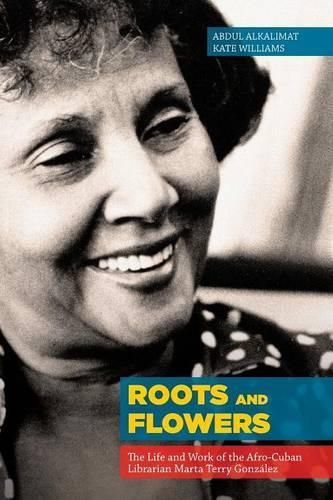Readings Newsletter
Become a Readings Member to make your shopping experience even easier.
Sign in or sign up for free!
You’re not far away from qualifying for FREE standard shipping within Australia
You’ve qualified for FREE standard shipping within Australia
The cart is loading…






This title is printed to order. This book may have been self-published. If so, we cannot guarantee the quality of the content. In the main most books will have gone through the editing process however some may not. We therefore suggest that you be aware of this before ordering this book. If in doubt check either the author or publisher’s details as we are unable to accept any returns unless they are faulty. Please contact us if you have any questions.
This book introduces North Americans and other general readers to 1) the role of Afro-Cubans in Cuban history and culture, particularly in the 20th century, and 2) librarianship in the context of the Cuban revolution. Considering these two related subjects through the life and work of Marta Terry, Cuba will serve as an example for other Africans in the Americas and for all library workers in times of social change. Marta Terry directed three centrally important Cuban libraries. Beginning in 1961 she was Che Guevara’s librarian when he organized the National Planning Board (JUCEPLAN) that set the post-1958 course for Cuba’s development. From 1967-1987, she was library director at the Casa de Las Americas, the organization built and led by Haydee Santamaria that published and connected writers and their readers from across Latin America and set a model for combining liberation politics and innovative cultural production. From 1987-1997, she was director of the Jose Marti National Library, at which time the library was assigned responsibility for all public library development on the Island and then managed through the collapse of the Soviet Union, then Cuba’s #1 trading partner and source of hard currency. A participant in international library gatherings since the 1950s, Marta Terry was also the point person in establishing Cuba’s international library reputation and connections through IFLA, bringing their annual meeting to Latin America for the first time in Havana in 1994. She was then also point person in defending Cuba from the US-government sponsored attack that followed, under the guise of the so-called independent libraries.
$9.00 standard shipping within Australia
FREE standard shipping within Australia for orders over $100.00
Express & International shipping calculated at checkout
This title is printed to order. This book may have been self-published. If so, we cannot guarantee the quality of the content. In the main most books will have gone through the editing process however some may not. We therefore suggest that you be aware of this before ordering this book. If in doubt check either the author or publisher’s details as we are unable to accept any returns unless they are faulty. Please contact us if you have any questions.
This book introduces North Americans and other general readers to 1) the role of Afro-Cubans in Cuban history and culture, particularly in the 20th century, and 2) librarianship in the context of the Cuban revolution. Considering these two related subjects through the life and work of Marta Terry, Cuba will serve as an example for other Africans in the Americas and for all library workers in times of social change. Marta Terry directed three centrally important Cuban libraries. Beginning in 1961 she was Che Guevara’s librarian when he organized the National Planning Board (JUCEPLAN) that set the post-1958 course for Cuba’s development. From 1967-1987, she was library director at the Casa de Las Americas, the organization built and led by Haydee Santamaria that published and connected writers and their readers from across Latin America and set a model for combining liberation politics and innovative cultural production. From 1987-1997, she was director of the Jose Marti National Library, at which time the library was assigned responsibility for all public library development on the Island and then managed through the collapse of the Soviet Union, then Cuba’s #1 trading partner and source of hard currency. A participant in international library gatherings since the 1950s, Marta Terry was also the point person in establishing Cuba’s international library reputation and connections through IFLA, bringing their annual meeting to Latin America for the first time in Havana in 1994. She was then also point person in defending Cuba from the US-government sponsored attack that followed, under the guise of the so-called independent libraries.